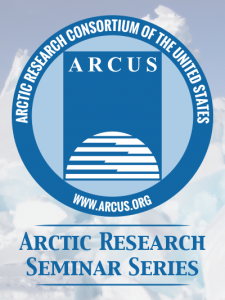The Arctic-FROST research coordination network is pleased to announce the availability of travel awards for Early Career Researchers to attend The Fifth Arctic-FROST network meeting and Early Career Scholars Workshop.
Arctic-FROST: Arctic FRontiers Of SusTainability: Resources, Societies, Environments and Development in the Changing North is a new NSF-funded international interdisciplinary collaborative network that teams together environmental and social scientists, local educators and community members from all circumpolar countries to enable and mobilize research on sustainable Arctic development, specifically aimed at improving health, human development and well-being of Arctic communities while conserving ecosystem structures, functions and resources under changing climate conditions.
The theme of the Annual Meeting and Early Career Scholars Workshop is on Community Sustainability in the Arctic. Papers could deal with (1) Indigenous and local communities and organizations approaches to sustainable development, (2) sustainable development within policy frameworks at regional and local levels, (3) models of collaboration between regional, local and Indigenous governing entities for sustainable development.
The main focus question of the conference is “What models of collaboration among researchers and regional and local governments and Indigenous organizations can lead to sustainable development in the Arctic?”
All participants:
(1) Will present their work at the Annual Meeting (all papers/presentations will be published online and considered for inclusion in the Arctic-FROST edited volume and/or in Polar Geography)
(2) Will participate in discussions and round tables with leading sustainability science researchers
(3) Will participate in the Workshop activities immediately following the Annual Meeting
Eligibility: an applicant shall be:
(1) early career scholar (5 years since PhD) or current graduate student;
(2) Arctic-FROST network member by registering at www.uni.edu/arctic/frost
(3) prepared make an oral presentation on the subject related to sustainability and/or sustainable development in the Arctic or Sub-Arctic regions at the meeting and
(4) available to participate in all conference and workshop activities.
We accept applications from eligible applicants from all countries, disciplines and institution types. Applications from Indigenous scholars and Arctic residents are especially encouraged.
Funding: Arctic-FROST will cover full cost of attendance including travel and accommodations normally up to $3,000. Typically funds will be paid after the travel is completed; based on the reimbursement claim. The participants will be expected to comply with NSF travel requirements.
Application Deadline: April 20th, 2018.
Application: submit extended abstract of your paper (500-750 words), short biosketch (1 page), statement of interest in workshop participation (1 page), register as Arctic-FROST member at www.uni.edu/arctic/frost
Send your applications and inquiries to ann.crawford [at] uni.edu and andrey.petrov [at] uni.edu (copy to both emails).

